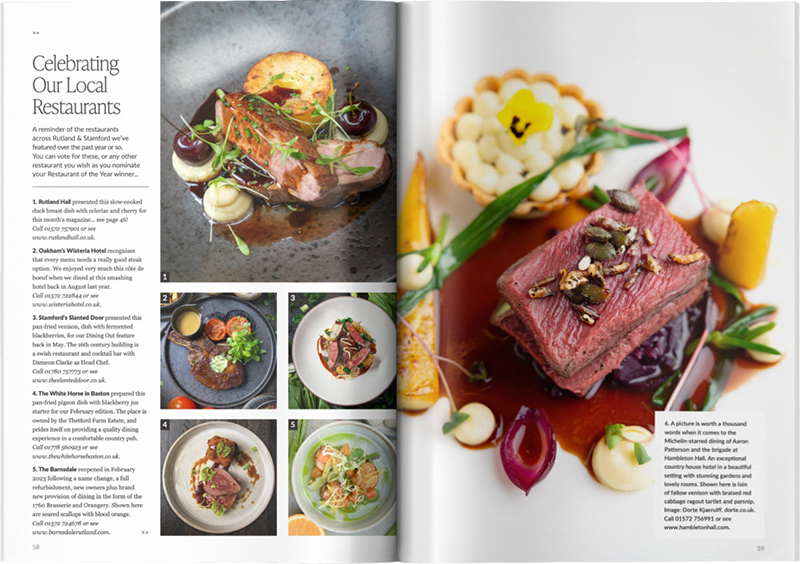
National Bread Week with Hambleton Bakery
Use your loaf this month and mark Real Bread Week by reminding yourself how artisan bakeries such as Hambleton Bakery are championing better bread. This month we examine why bread is a good ilustration of what’s going wrong with our food as co-founder Julian Carter gains a new apprentice
It’s a staple of our store cupboards and one of the most common items in our shopping baskets. Bread is purchased by 99.8% of British households. Every day 11m loaves are purchased and it’s reckoned that by 2026 the British bread market will reach £9bn in value with each household buying 80 loaves a year.
What’s more, a good thick slice of bread with a slather of proper salty butter is a real treat throughout the year. Bread is one of our most venerable foods, healthy, filling and cheap. And sadly, at the same time, no product than bread better reflects how terribly wrong things are going with the food we eat in this country.
This month especially though, Real Bread Week and traditional bakers like Julian Carter of Hambleton Bakery are aiming to remind us of what constitutes ‘real’ bread and to reunite us with an old favourite.
Hambleton Bakery is unusual in its scale. 85% of the bread we consume in Britain comes from just three companies – Allied, Hovis and Warburtons – with their industrial plant bakeries, about 150 sites that employ more than 100 people each. The in-store bakeries of supermarkets produce a further 12% of the bread we consume, which leaves just 3% of the market served by 4,500 small craft bakeries.
Put simply, most bakeries are either prolific but produce mediocre bread, or they’re tiny and produce very good bread, but not at scale. Hambleton Bakery, by contrast, manages to produce 643 tonnes of bread annually – about three quarters of a million loaves – but without sacrificing its core principles of making authentic ‘real’ bread.
The bakery was founded by Hambleton Hall’s Tim Hart and co-owner (and head baker) Julian Carter in September 2008. Production has scaled up ever since and now the bakery has 120 wholesale customers as well as eight of its own shops. A new purpose-built bakery adjacent to the A1 on Hooby Lane opened in 2023 and is dedicated to the production of bread, which constitutes about three quarters of the company’s output. That leaves the original premises on Cottesmore Road in Exton free to create Hambleton’s cakes and savouries, and it has afforded the company the room to create a café in the building. The former power station was bursting at the seams and struggling to accommodate demand prior to the new Hooby Lane site’s creation.
Today the company employs about 120 staff including 10 bakers specialising in cakes and savouries in Exton and 20 bakers working three shifts at Hooby Lane. There, the team produces 17 different doughs that in turn become 38 different types of bread.
Julian began his career in his family’s bakery in Liverpool, later joining the RAF as a chef and then working as John Major’s chef at Downing Street and Chequers. He joined Hambleton Hall and remained there for nine years before founding Hambleton Bakery. From the start, he and Tim Hart were both determined that any growth as a result of demand for their bread would not be at the expense of quality. Today though, they remain in the minority in maintaining that ethos, thanks to Bill, George and Norman.
We’re all accustomed to the convenience of the supermarket and the availability of cheap food. But in the Hertfordshire village of Chorley Wood in 1961 it all went horribly right. Three bakers working at the British Baking Industries Research Association successfully devised what would come to be known as the Chorley Wood Bread Process, which dramatically speeds up the processing time needed when making bread, ensuring that a white sliced loaf can be produced from flour to packaging in under two hours.
Bill Collins, George Elton and Norman Chamberlain reckoned their new method was the best thing since sliced bread, facilitating the use of lower-protein wheats, reducing labour and ultimately ensuring that baking bread was a good deal more profitable for supermarkets who were (and still are) assuring us our future as consumers would be predicated upon convenience and cheap food.
Today, 80% of the bread we consume is produced using the Chorley Wood Bread Process. But with increased productivity comes the relative indigestibility of the bread it produces. One Derbyshire-based research team’s longitudinal study of the presence of gluten intolerance and coeliac disease has seen the prevalence of gluten sensitivity increase by 2,000% from 1970-present, with women and those over 60 more sensitive than other demographics.
The Real Bread Campaign was officially launched in 2008 with a view to defining ‘real’ bread, produced by bakers following traditional methods, rather than the Chorley Wood Bread Process. The Real Bread Campaign officially defines ‘real’ bread as that made without chemical raising agents, processing aids or other additives. That includes – but isn’t limited to – sourdough loaves made with a maintained culture, such as Hambleton Bakery’s own sourdough loaves… which take over 30 hours to produce from start to finish.
At 7am on a chilly Tuesday morning in January I reported to Julian as his new apprentice, just as the early shift were finishing work. The team is responsible for making and shaping sourdough loaves – the bakery’s flagship product – as well as making products like croissants, Eccles cakes, and spelt loaves. They’re also responsible for nurturing the sourdough culture in two fermenting tanks, kept at about 18°c.
When the day shift take over, they can bake the previous day’s sourdoughs that have been held in the provers overnight at 20°c. This slow fermentation affords plenty of time for the breaking down of gluten, making the bread more digestible and ensuring the body can access and use more of the fibre, vitamins and minerals within the loaf.
On the Sunday evening before my visit, at about 11pm, the night shift extracted some of the bakery’s starter culture and made up the dough to Julian’s established recipe. The flour that the bakery uses to make its sourdough is blended and includes heritage wheat grown exclusively for the bakery by Max Cheyney of Loughborough-based Whatton Farm. It’s stone milled by millers like Whissendine’s Nigel Moon and James Waterfield of Boston’s Maud Foster windmill… as opposed to being roller-milled industrially, which is a cooler process, enabling the flour to retain natural oils and retain a richer more complex taste. When making the dough, even water is dosed from holding tanks which ensure it comes out at precisely 24°c.
The strict use of good ingredients is a precedent carried over from Julian’s time in the kitchens of Hambleton Hall, but he maintains that process is as important as ingredients. It’s flipped three times to ensure an even prove and then cut and shaped from a 250kg batch into individual loaves which are then placed into baskets and go in the provers ready for my shift to bake them during my visit.
The advanced provers in the bakery ensure that sourdough and other dough for breads like Julian’s cereal tins, white loaves and wholemeal loaves can be held until a team of bakers are ready to put them in the ovens, enabling baking schedules to be staggered across shifts for consistent wholesale deliveries and for the bakery’s vans’ various delivery routes to its eight shops, to local farm shops and so on.
Finally, when the bakers are ready, the loaves are loaded into the bakery’s setter oven with its loading platform – a rather more convenient way to bake than the Exton-based bakery’s original wood-fired oven or the three ovens the ream subsequently installed. Hooby Lane’s oven has four cavities vertically and three horizontally, each individually held at 200°c. With the loading platform it’s possible to load and unload the oven in under an hour with minimal handling, straight onto cooling racks, and the oven’s capacity is about 100 sourdough loaves at a time. The oven is dedicated to bread, with additional rotary ovens in the bakery used for other items, like the Eccles cakes the team was unloading as out shift started work.
It’s a well-organised operation, working 24 hours a day, and it’s one that’s precisely-controlled and predicated on using the best ingredients, but it’s still one that takes much longer, as befits ‘real’ bread. But the proof of the pudding is in the, um, bread, as anyone who’s ever enjoyed Hambleton Sourdough knows.
“The mission from the outset was simple; to produce good bread and an authentic product,” says Julian. “Our customers’ love for our products more than vindicates the longer process and the effort. I’ve spoken to so many people who thought themselves gluten-intolerant but have found they can digest and enjoy our bread. We’re also really proud that the best local restaurants are keen to let their customers know they source their bread from us. We’re so passionate about the product, so keen to retain its authenticity, and above all, so glad to be a part of our customers’ enjoyment of toast at breakfast time, lunchtime sandwiches and their afternoon teas!”
Hambleton Bakery has eight shops including Exton, Stamford, Oakham. You can also shop online and enjoy real bread, cakes and savouries delivered to your door at www.hambletonbakery.co.uk.
See our full feature in our March edition at https://issuu.com/pridemagazines/docs/rutland_pride_march_2025






